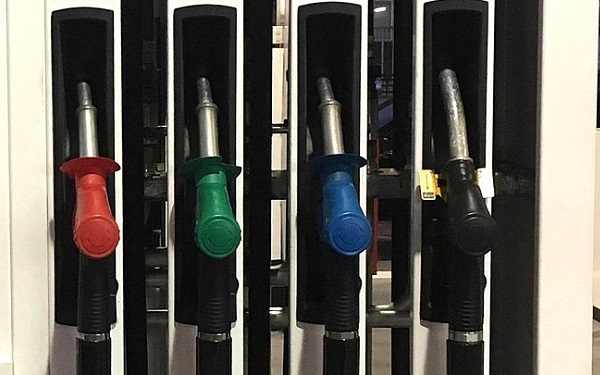
The government has rejected calls to give social workers and care staff priority access to fuel, amid petrol station closures across the country.
Social workers and care staff are being impeded in their roles by a lack of fuel at petrol stations across the country, sector bodies and unions for the sector have warned.
The Social Workers Union (SWU) said its members had been struggling to get into work to complete statutory child protection visits while the Association of Directors of Adult Social Services (ADASS) said care staff were spending hours queuing to fill up instead of supporting people in the community.
Both organisations called for staff to be given priority access to fuel as essential workers, as did the Homecare Association, which said some petrol stations had refused to recognise home care workers as such.
A shortage of heavy goods vehicle (HGV) drivers in the country has led to many petrol stations being unable to restock fuel and some customers stocking up, triggering further shortages.
‘Unable to make statutory visits’
John McGowan, SWU general secretary, said some members had told him they were “struggling to get into work to complete their statutory child protection visits and asking what the union is going to do about it”.
He said social workers in more remote areas, where petrol supplies were more scarce in the first place, were the worst affected.
“I think there needs to be a clear message that it is impacting on the social work service and […] if these tasks cannot be completed, then nobody is doing the assessments or the statutory visits,” he added.
ADASS said it had heard reports from around England of care staff struggling to find fuel or having to spend hours queuing to fill up instead of supporting people in the community or in care settings.
And the Homecare Association reported “a weekend of chaos”, which it said saw home care workers caught in queues, being late for calls, struggling to buy petrol and being turned down as essential workers as petrol stations “brought in their own rationing”.
Related articles
Demand for priority access
Jane Townson, chief executive of the Homecare Association (formerly the UK Homecare Association), said she had urged senior officials at the Department of Health and Social Care (DHSC) to prioritise home care workers for fuel access.
She also called on the government to:
- Declare there was an issue so that local authorities could invoke their civil contingency plans.
- Provide fuel vouchers for home care and other essential workers so that their eligibility for fuel was clear.
- Communicate swiftly to the nation that priority must be given to essential workers and panic buying created risks to the health and wellbeing of older and disabled people.
“In previous fuel strikes, local authorities have been able to arrange for scarce fuel to be prioritised for essential users,” she said.
“There is a question whether this needs authority from central government, under civil contingencies legislation, to address the current problem.
“We call for this issue to be resolved urgently, as home care workers need a fast solution so they can get to people who rely on their vital help.
“The lack of communication from government is not helping.”
McGowan called on the government to give social workers “the same status”, as they were in the early stages of the Covid-19 pandemic, and therefore prioritise them for fuel access.
In March 2020, staff across adults’ and children’s services were included in a government list of key workers whose children could continue to attend school during closures caused by the coronavirus crisis.
Panic buying ‘putting lives at risk’
McGowan also urged the public to stop panic buying, which he said was “putting people’s lives at risk”.
“We’ve got social workers doing statutory tasks that they can’t complete because they haven’t got any fuel in the car,” he said.
ADASS suggested that the government introduce designated protected slots at filling stations to ensure access to fuel for care staff, and called on other members of the public to limit their car use.
“The government must do all it can to guarantee adequate fuel supplies at filling stations, but the problems being experienced by care staff show that special steps are needed to help them,” said Stephen Chandler, ADASS president.
“The public also have a responsibility not to make their difficulties any worse.”
‘No emergency’ – government
The government said that it was not prioritising fuel for key workers as “we are not in a national emergency” and “there is no shortage of fuel in the UK”.
It admitted that some petrol stations had run out of stock due to a shortage of drivers to transport the fuel from refineries and import terminals but urged members of the public to buy fuel “as normal”.
“We recognise the challenges facing industry and have already taken action to increase the supply of HGV drivers – including streamlining the process for new drivers and increasing the number of driving tests – and by temporarily relaxing competition law to prioritise fuel deliveries to areas most in need,” a spokesperson said.
The government has temporarily allowed HGV drivers to work longer hours, is using a reserve fleet of fuel tanker vehicles to add capacity and could deploy the Armed Forces to make fuel deliveries if services continue to be disrupted.




 Bournemouth, Christchurch and Poole
Bournemouth, Christchurch and Poole  Hampshire County Council
Hampshire County Council  Lincolnshire County Council
Lincolnshire County Council  Norfolk County Council
Norfolk County Council  Northamptonshire Children’s Trust
Northamptonshire Children’s Trust  South Gloucestershire Council
South Gloucestershire Council  Wiltshire Council
Wiltshire Council  Wokingham Borough Council
Wokingham Borough Council  Children and young people with SEND are ‘valued and prioritised’ in Wiltshire, find inspectors
Children and young people with SEND are ‘valued and prioritised’ in Wiltshire, find inspectors  How specialist refugee teams benefit young people and social workers
How specialist refugee teams benefit young people and social workers  Podcast: returning to social work after becoming a first-time parent
Podcast: returning to social work after becoming a first-time parent  Podcast: would you work for an inadequate-rated service?
Podcast: would you work for an inadequate-rated service?  Family help: one local authority’s experience of the model
Family help: one local authority’s experience of the model  Workforce Insights – showcasing a selection of the sector’s top recruiters
Workforce Insights – showcasing a selection of the sector’s top recruiters 

 Facebook
Facebook X
X LinkedIn
LinkedIn Instagram
Instagram
Once again this just show the total disregard this Government has for Social Care, it is as though they do really wish that social care disappears and all those in need of social care deserved all the pain and suffering to which they will have coming to them.
This is totally not unexpected by this Government, but I do hope they all suffer in life.
There are 4 different recycling units in my office occupied by 24 staff. The vigilance with which how waste is correctly separated and disposed of could teach several lessons to Extiction Rebellion. 19 of my colleagues insist on driving cars they rarely use to transport others or equipment. So the question to ask is whether a car really is essential for work purposes in cities? I seem to get on fine on a bike. Admittedly that would not be much use in say rural Northumberland but interestingly petrol shortages are not a big issue there. Unlike London. Which has a subsidised and relatively well functioning public transport service.